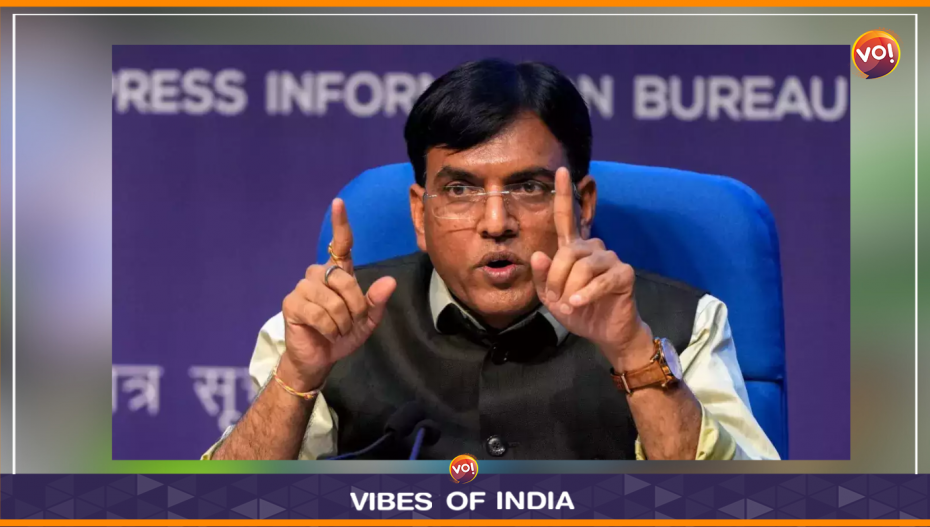Indian scientists are closely monitoring each new variant of COVID-19 as the virus approaches an endemic stage, said Union Health Minister Mansukh Mandaviya. Underlining that the virus has managed to survive and is going to stay, the minister stated that the government would continue to maintain a high state of alertness.
In a recent interview, Mandaviya highlighted the current stability of the situation after more than three years of grappling with one of the world’s worst pandemics. However, he stressed the importance of maintaining necessary measures to safeguard against any potentially lethal variants.
The first case of the deadly virus was detected in China in late 2019, with India reporting its first case in late January 2020. Since then, the country has witnessed close to 4.5 crore positive cases and over five lakh deaths across multiple waves.
Fortunately, the caseload has significantly declined in recent months, with active cases now standing at around 1,800. The overall recovery rate is nearly 99 per cent, while the fatality rate stands at approximately 1 per cent.
On Tuesday, only 36 new cases were reported, marking the lowest number since March 2020. This is a substantial decrease compared to the record-breaking peak of over four lakh new cases in a single day during the height of the pandemic in May 2021, and again with more than three lakh cases in January 2022.
Moreover, India has administered over 220 crore doses of COVID-19 vaccines, with nearly 90 per cent of the eligible population fully vaccinated.
Mandaviya highlighted the ongoing surveillance conducted by the Indian Council of Medical Research (ICMR) on each variant of COVID-19. Over 224 variants have been identified in the country so far, with continuous genome sequencing being carried out for each variant. When a new variant is discovered, it is isolated and tested for vaccine effectiveness and lethality.
The health minister emphasized the importance of closely monitoring and preparing for any future variants that could pose a threat. While the situation is currently stable worldwide, the government remains vigilant, as the virus is expected to persist.
Drawing a parallel to the influenza virus, Mandaviya stated that similar to how people experience coughs and fevers with new influenza variants, COVID-19 is likely to follow a similar pattern without causing significant harm, as has largely been observed.
Experts classify a disease as endemic when its presence becomes constant within a particular geographic area, following established patterns, similar to seasonal influenza.
Globally, more than 76 crore confirmed COVID-19 cases and nearly 69 lakh deaths have been reported to date, with 1,340 crore vaccine doses administered.
The most significant spike in cases occurred in December 2022, nearly a year after the earlier peak in January 2022. In terms of deaths, January 2021 marked the worst period, which remained concerning for almost a year.
While the World Health Organization (WHO) recently declared that COVID-19 no longer constituted a public health emergency of international concern, it stopped short of declaring it an endemic disease.
Reflecting on India’s fight against the pandemic, Mandaviya, who assumed the role of health minister in July 2021, described COVID-19 management as a significant challenge for a vast and diverse country like India. Nevertheless, he emphasized that India’s success story has become an exemplary model for the world.
Addressing concerns about vaccine approvals and potential long-term side effects, Mandaviya affirmed that the entire process, from research to administration, followed established international standards. He explained that the use of advanced technology, including artificial intelligence, facilitated a faster development and approval process compared to previous times when physical and manual procedures were more time-consuming.
Also Read: Now, Gujarat History Seen Through The Eyes Of An American













